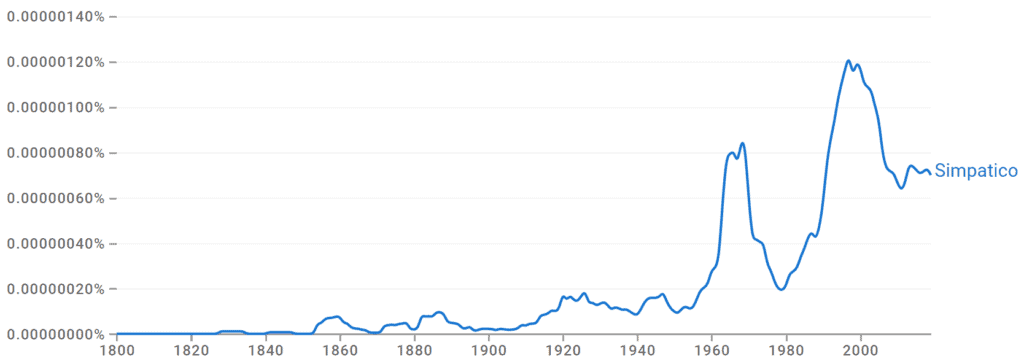Simpatico is a loan word derived from the romance languages Italian and Spanish. Loan or borrowed words originate outside of English but are recognized and used within English. Often, they have the same meaning as their origination, but occasionally, they have taken on a new definition and use.
Simpatico is a great example of a loan word used differently in English than in its native tongue. Let’s take a closer look at what simpatico means and how to use it properly.
What Is the Meaning of Simpatico?

Simpatico in English takes on more than one meaning. Still, each definition serves as an adjective and relates to an affinity of some sort related to the relationship between people or things.
Simpatico is used to mean that a person is likable.
For example:
- Lisa is incredibly simpatico; everyone is drawn to her warm personality and finds her incredibly likable.
Simpatico can mean that two or more people have a personal or intellectual affinity with one another.
For example:
- The intellectual elementary student and her neighbor, a 70-year-old retired professor, seemed to be totally simpatico and often enjoyed an afternoon game of chess through the summer.
Simpatico infers that two or more people get along easily with one another.

For example:
- Mark and Thomas have been simpatico since they first met in kindergarten and are graduating from high school this year.
Simpatico is sometimes used to explain that something is closely associated with something or someone else.
For example:
- Despite not always being simpatico with the day-to-day goings on of his colleagues, he always had a kind word for everyone he came in contact with.
Synonyms of Simpatico
To help you better understand what simpatico means, try using synonyms in its place to determine if its use makes sense and is understandable. These words are excellent substitutes.
- Compatible
- Congenial
- Friendly
- Amiable
- Good-natured
- Harmonious
- Nice
- Gracious
Origins of Simpatico

Simpático in Spanish and Simpatico in Italian means sympathetic, understanding or congenial and is from the late 19th century. It derives from the 16th-century Latin sympathia, meaning sympathy. It was integrated into English in the 1800s, but instead of placing emphasis on the sympathetic use of the word as Spanish and Italian do, English uses it to highlight congenial behaviors.
Let’s Review
Simpatico is an adjective derived from Spanish and Italian. It is used in English to mean that a person is likable, has an affinity with another, gets along well, or is closely associated with another person or something else.
Although these meanings are also used in Spanish and Italian, these languages more often use it to mean sympathetic rather than a way to highlight a relationship of some sort.

Comments are closed.